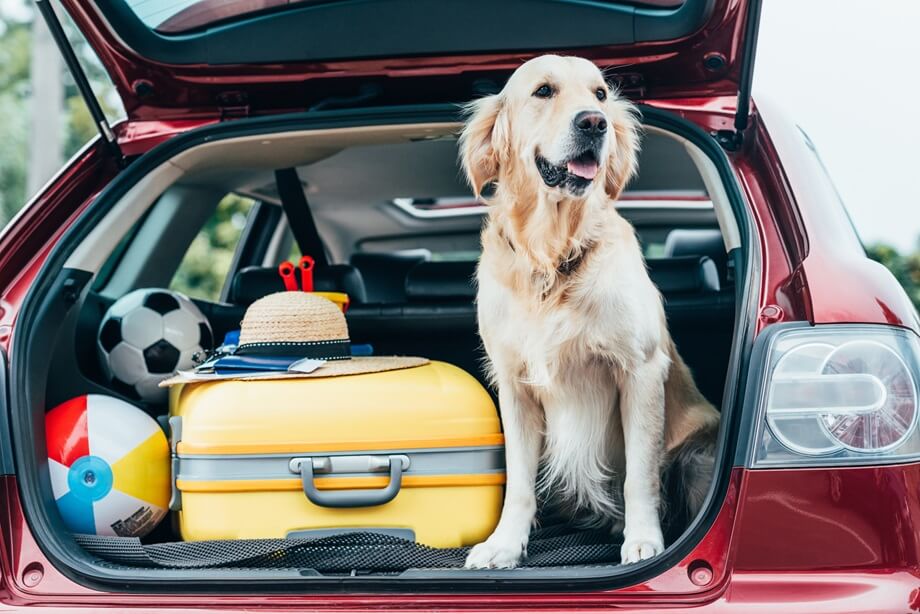Reducing Stress for Pets When Relocating

Familiarity and Routine:
Maintaining a sense of familiarity and routine is crucial for pets when traveling. Try to keep your pet's daily schedule as consistent as possible, including feeding times and bathroom breaks. Bringing their favourite toys or bedding can also offer a sense of comfort in an otherwise unfamiliar setting.
Pre-Trip Vet Visit:
Before embarking on your journey, schedule a visit to the veterinarian. Ensure that your pet is up-to-date on vaccinations and medications. Discuss any specific travel-related concerns with your vet, and consider obtaining a health certificate if required for your destination.
Crate or Carrier Training:
If your pet is not used to traveling in a crate or carrier, it's essential to start crate training well in advance of your trip. Gradually introduce them to the crate, making it a positive and comfortable space.
Short Practice Trips:
Before the big journey, take your pet on short practice trips. This helps them get used to the motion and confinement of a vehicle. Start with short drives and gradually extend the duration to build their tolerance.
Comfort and Safety in Transit:
Whether you're travelling by car or plane, ensure your pet is safe and comfortable. Use a secure crate or carrier that allows your pet to stand, turn around, and lie down. Add familiar bedding and a favourite toy to provide comfort.
Regular Breaks:
During a road trip, make frequent stops to allow your pet to stretch, exercise, and relieve themselves. Keep them on a leash or in a secure area during pit stops to prevent escapes. This also helps break up the journey, reducing the overall stress of travel.
Proper Nutrition and Hydration:
Ensure your pet has access to food and water during the trip. Familiar food can help maintain their routine, and dehydration can exacerbate stress. Be cautious not to overfeed, as motion sickness can affect some pets.
Calming Strategies:
Consider using calming products or techniques for your pet, such as pheromone sprays, natural supplements, or a well-fitted anxiety wrap. However, we advise against the use of sedatives as these can have heightened effects during air travel. Consult with your veterinarian about any recommended calming options.
Acclimating to the Destination:
Upon arrival at your destination, take some time to help your pet acclimate. Allow them to explore their new surroundings gradually and in a controlled manner. Maintain routines and familiar cues to provide comfort.
Relocating your pet is a necessary part of moving your whole family and as a responsible owner, you’ll always want to minimise your beloved pet’s discomfort at being in unfamiliar surroundings. By taking these precautions and planning ahead, you can help reduce their stress and ensure a safe and comfortable journey. Remember that every pet is unique, so it's essential to tailor your approach to your pet's specific needs and preferences. With the right care and attention, you can make travelling with pets a positive and enjoyable experience for all involved.